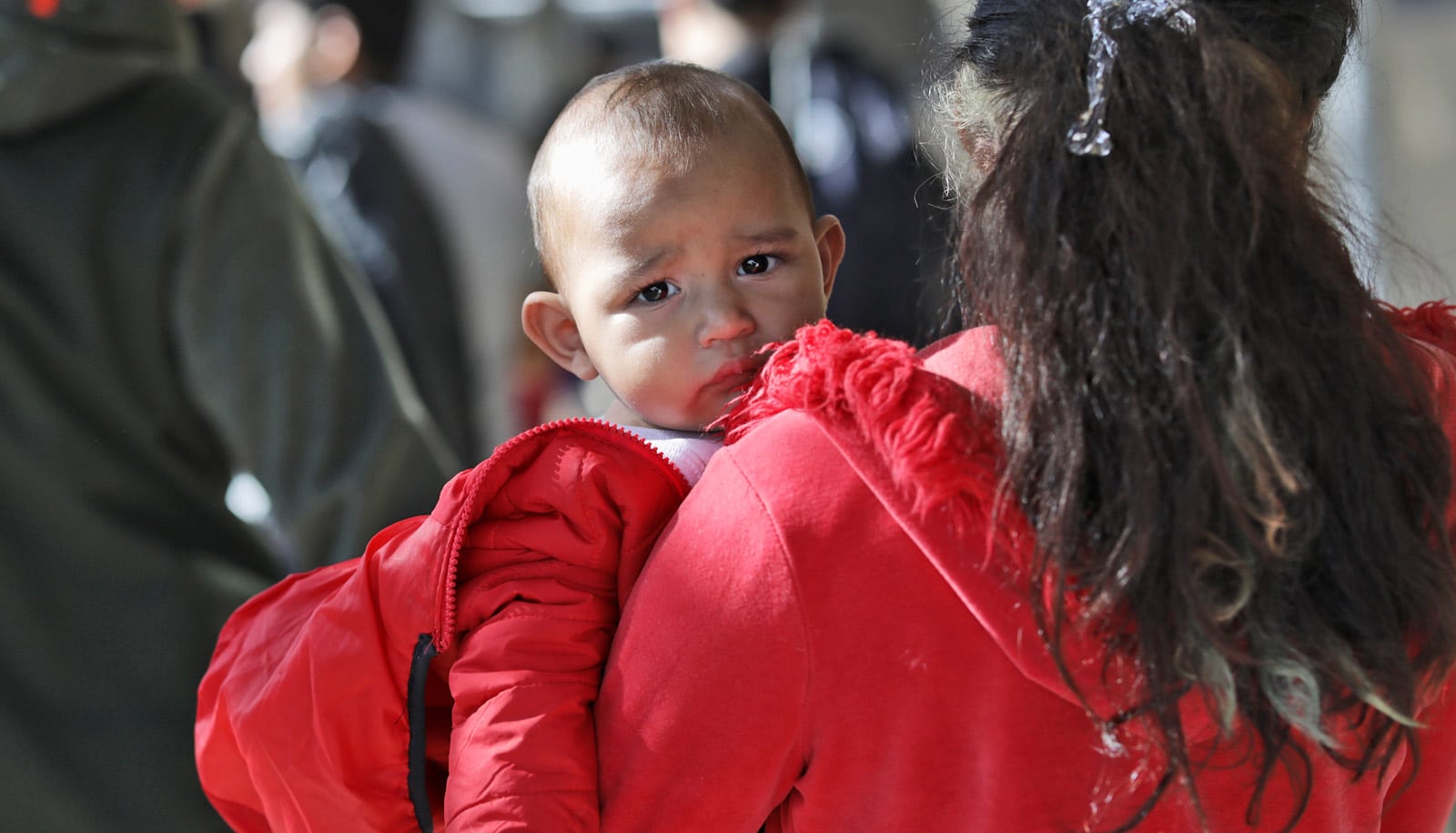
Immigrant asylum seekers wait at a bus station after being released by U.S. Customs and Border Protection (CBP), on November 1, 2018 in McAllen, Texas. (Credit: John Moore/Getty Images )
Immigrant kids in ‘tender age’ shelters face myriad risks
The youngest immigrant children—detained in so-called "tender age" shelters—may be the most vulnerable to the stress of separation from their parents.
Separating immigrant children from their parents will very likely lead to negative effects on emotional and mental health, research shows. Young children placed in “tender age” shelters are the most vulnerable, experts say.
“Recent changes in the US immigration system have resulted in a large number of children removed from their parents, drawing increased scrutiny to this abhorrent practice,” says Kathryn Humphreys, a psychology professor at Vanderbilt University and author of a paper in the Journal of Clinical Child and Adolescent Psycholgy.
“Exposing children to such high levels of stress puts them at an elevated risk for psychopathology in the future, including depression and anxiety, aggressive behaviors, attention-deficit/hyperactivity disorder, attachment disorders, language deficits, and social difficulties.”
Children who experienced stressful or traumatic experiences in their earliest years—birth to age five—were found to have reduced hippocampal volume when they reached adolescence. Reduced hippocampal volume is associated with memory issues, learning difficulties, and depression.
“Many members of the lay public, public officials, and even scientists perpetrate a pernicious belief that if children cannot remember something, it does not affect them. This could not be further from the truth,” Humphreys says.
“Our research finds that infants and young children up to age five are particularly affected by experiences of stress and trauma. Children belong in families that are safe and supportive and substitute group-based care is insufficient to meet their emotional needs.”
The practice of separating immigrant children from their parents at borders as a deterrent is counterproductive, Humphreys says.
“Studies show that parents separated from their children due to immigration enforcement report an intention to return to the United States following deportation with a goal of reuniting with their children,” she says.
“In other words, their love for their children motivated the seeking of safety and opportunities in a new country as well as the willingness to face detention to reunify with those separated children.”
Source: Vanderbilt University
The post Immigrant kids in ‘tender age’ shelters face myriad risks appeared first on Futurity.
Share this article:
This article uses material from the Futurity article, and is licenced under a CC BY-SA 4.0 International License. Images, videos and audio are available under their respective licenses.


